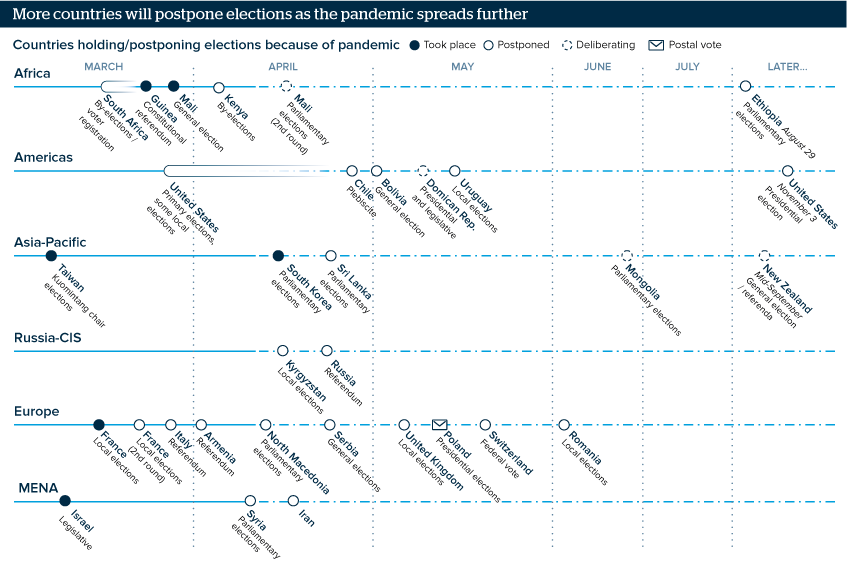COVID-19 election delays could dent democracies
The pandemic is forcing countries to delay elections or find other ways to conduct them
Source: International Institute for Democracy and Electoral Assistance (IDEA)
Outlook
The COVID-19 pandemic is forcing many countries to postpone elections, such as Bolivia, Ethiopia, North Macedonia, Serbia, Sri Lanka and Syria. Others are considering alternative ways to conduct them, such as postal voting, which is being considered in the United States, and will be used in Poland for its May 10 presidential election.
Delays in elections could push some leaders beyond their constitutional mandates, creating a legitimacy deficit. Many constitutions have fundamentally failed to anticipate such a scenario, putting the legality of delays in question. In some countries, leaders with autocratic tendencies may take advantage of the crisis to stay in office longer.
Impacts
- US elections are unlikely to be delayed, but health fears could depress turnout.
- Alternatives to in-person voting will be logistically problematic in many countries and will risk accusations of electoral fraud.
- South Korea will conduct its April 15 parliamentary elections, providing a test case for polls under an extensive virus testing regime.
- If elections are held under the outbreak, this may dissuade older voters, changing voting demographics and altering party bases.
See also
- COVID-19 will embolden autocrats - Apr 7, 2020
- More graphic analysis
